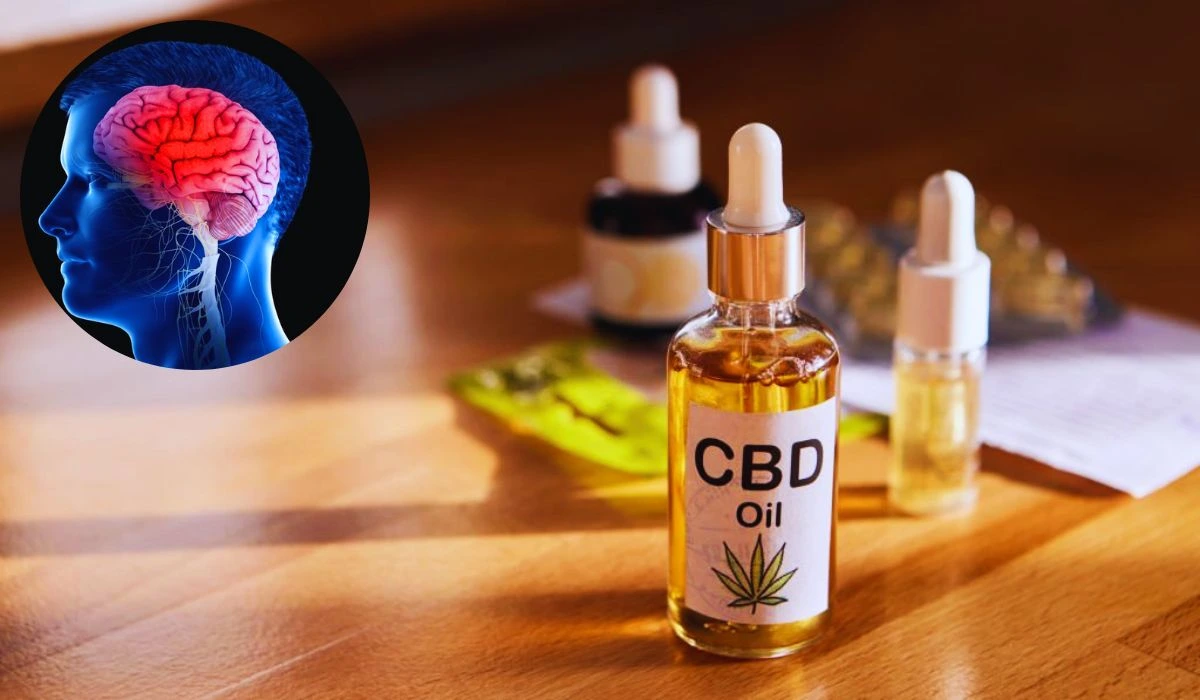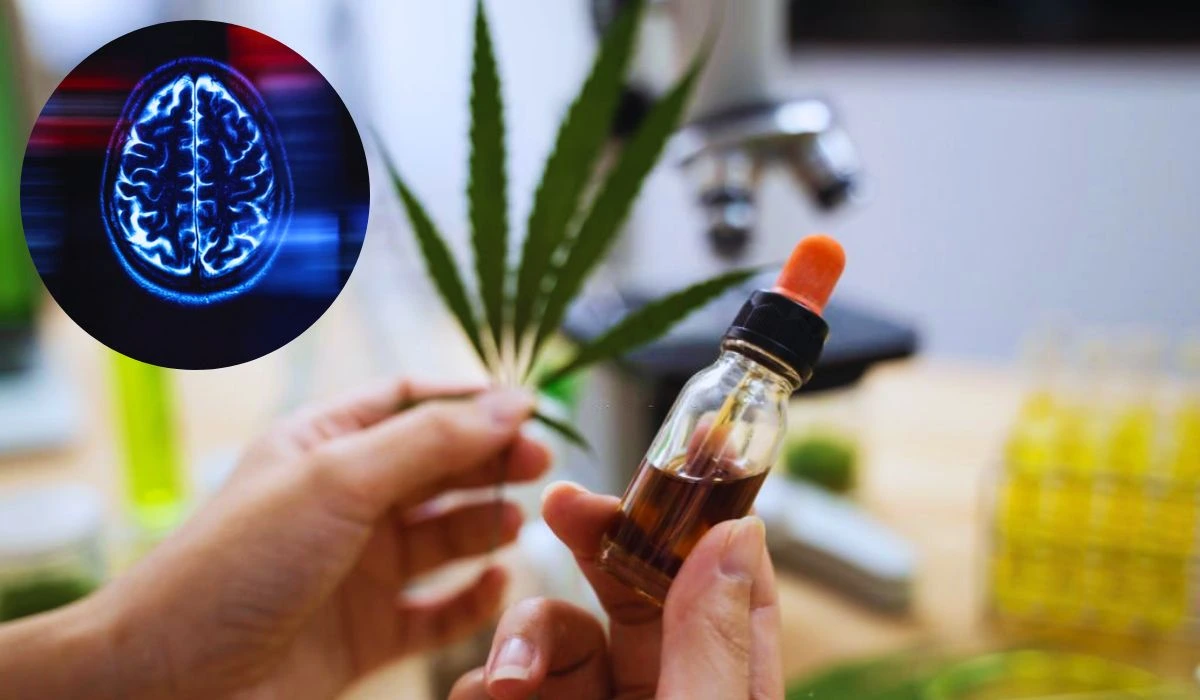To understand the effects of cannabinoids on the brain, delve into the introduction that covers the definition of cannabinoids and a brief overview of the endocannabinoid system.
Definition Of Cannabinoids
Cannabinoids–chemical compounds found in cannabis–have gained attention for their potential therapeutic uses. They interact with the body’s endocannabinoid system, which plays a key role in many physiological processes.

Delta-9-tetrahydrocannabinol (THC) is the best-known cannabinoid. It is responsible for cannabis’ psychoactive effects. Yet, there are over 100 different cannabinoids in cannabis, each with distinct effects and advantages.
Diving into cannabinoids reveals many interesting facts. For example, cannabidiol (CBD) has anti-inflammatory and analgesic properties. People often use it to manage pain and reduce inflammation. Plus, CBD may also have therapeutic potential in treating epilepsy and anxiety.
It’s worth noting that not all cannabinoids come from cannabis. Mammals’ bodies make their own cannabinoids, which are known as endocannabinoids. These molecules regulate mood, sleep, and appetite.
A Brief Overview Of The Endocannabinoid System
The endocannabinoid system is a complex network of receptors, enzymes, and endocannabinoids throughout the body. It controls many bodily processes, like pain sensation, mood, appetite, and immune response. It’s named after cannabis, which uncovered it.
Two main types of receptors exist: CB1 mainly in the central nervous system, and CB2 mainly in the peripheral tissues. These respond to both endocannabinoids from our bodies and external cannabinoids from cannabis plants. When activated, they signal processes to start or stop, helping keep homeostasis.
A unique thing about the endocannabinoid system is that it has different effects depending on which part of the body it’s in. Like, activation of CB1 in the brain could lead to pain relief or altered mood. Whereas, activating CB2 in immune cells could affect inflammation or immune response.
Research is being done to exploit this system with drugs targeting it. Scientists are hoping to find treatments for conditions such as chronic pain, neurodegenerative diseases, and mental health issues.
🔶 Pros Of Cannabinoids On The Brain
To gain insight into the positive impacts of cannabinoids on the brain, explore the pros associated with their use. Uncover the potential for pain relief and anti-inflammatory properties, discover their potential in treating epilepsy and other neurological disorders, and explore how they may alleviate symptoms of anxiety and depression.

✅ Pain Relief And Anti-Inflammatory Properties
Cannabinoids, like CBD, can interact with receptors in the brain and the peripheral nervous system. This can give relief from pain, as it modulates pain signals.
Research has also found they possess potent anti-inflammatory effects. Inhibiting the release of inflammatory mediators, cannabinoids can lessen inflammation in various tissues and organs.
Plus, they have neuroprotective properties. This means they reduce inflammation in the brain and protect neurons from harm. This may help with long-term conditions, such as multiple sclerosis and Alzheimer’s disease.
These compounds also control immune responses and enhance overall well-being. Because of this, they are a promising area for therapeutic applications.
✅ Potential Treatment For Epilepsy And Other Neurological Disorders
Cannabinoids could be a promising way to treat epilepsy and neurological disorders. Studies suggest they reduce seizures and improve brain functioning. Additionally, they can protect the brain from damage.
Notably, cannabinoids can interact with the endocannabinoid system in the brain. This system regulates mood, memory, and pain. So, by modulating it, cannabinoids could possibly ease symptoms of neurological problems.
Plus, research suggests that cannabinoids have anti-inflammatory properties. Inflammation is a big factor in many neurological disorders. By reducing inflammation, cannabinoids can help reduce symptoms and benefit neurologic health.
✅ Alleviation Of Anxiety And Depression Symptoms
Cannabinoids could help with symptoms of anxiety and depression. They connect to the brain’s endocannabinoid system, which controls emotions, stress levels, and mood.
Studies indicate that cannabinoids like CBD could decrease activities connected to anxiety and improve social anxiety disorder signs. Serotonin levels in the brain may also increase, which could help lessen depression symptoms.
In addition to their direct impact on mood disorders, cannabinoids can also assist with other related issues, such as sleep problems and chronic pain. For instance, research indicates that THC relieves pain and improves sleep quality for those with depression.
🔶 Cons Of Cannabinoids On The Brain
To understand the cons of cannabinoids on the brain, delve into the adverse effects on memory and cognition, the potential risk of addiction and dependency, and the impact on mental health conditions. Each sub-section will highlight a different aspect of the negative impact of cannabinoids on the brain.
💠 Adverse Effects On Memory And Cognition
The effects of cannabinoids on memory and cognition are of major concern. Studies reveal that these substances can negatively affect both short-term and long-term memory. Furthermore, regular use of cannabinoids can lead to impairments in working memory, hindering tasks such as problem-solving and decision-making.
Moreover, cannabinoids interfere with the consolidation process of long-term memory, making it hard for individuals to recall information. These adverse effects are more prominent in teenage users since their brains are still developing and more sensitive to the harmful effects of cannabinoids.
Therefore, it is best to stay away from or limit the use of cannabinoids, particularly during adolescence when the brain is maturing. Taking care of the brain’s health and promoting cognitive well-being is essential for a successful life.
💠 The Potential Risk Of Addiction And Dependency
Cannabinoids have been linked to the potential for addiction and dependency. This raises worries about long-term effects on the brain. Here are six things to consider:
- Regular use of cannabinoids can trigger the brain’s reward system and make users crave the substance.
- Dependence can develop over time, and users may feel withdrawal symptoms if they try to stop or reduce usage.
- Addiction can make it hard to control drug intake, leading to bad effects on health.
- Studies show that addiction can affect memory, attention, and decision-making.
- Adolescents may be more likely to become addicted, as their brains are still developing.
- Easily available, strong cannabis products raise the risk of addiction and dependency.
💠 Impact On Mental Health Conditions
Cannabinoids may be bad for mental health. Studies show they can make anxiety, depression, and psychosis worse. These compounds can mess with the brain’s chemistry, disrupting good mental health.
People with pre-existing mental health issues may be more sensitive to the bad effects of cannabinoids. For example, if someone has anxiety, using these substances could make them feel uneasy and restless. People with depression might find their symptoms get worse after using cannabinoids.
Research also shows that cannabinoids can interfere with the brain’s reward system. This can lead to substance abuse and addiction by changing dopamine levels in the brain.

